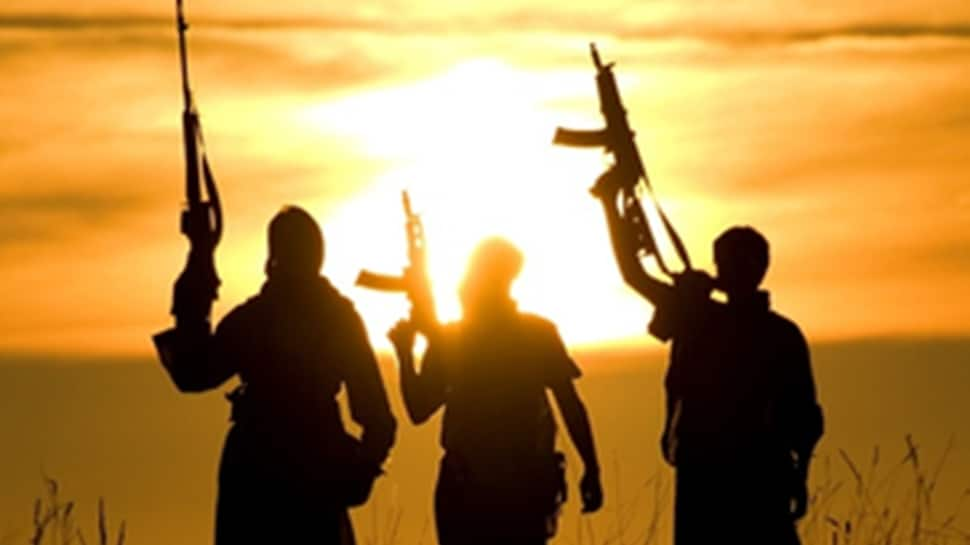In recent times, the Pakistan Army has found itself embroiled in a series of setbacks and challenges that have exposed its vulnerabilities and shaken the confidence of the establishment. A combination of internal fissures revealed by operations such as Operation Sindoor, and significant casualties inflicted by various terrorist organizations—many of which were originally nurtured or tolerated by the state—have put the military under immense pressure. Although Pakistan has reportedly entered into a fragile truce with the Taliban, many analysts and security experts remain skeptical about its durability. The persistent and escalating attacks by the Tehreek-e-Taliban Pakistan (TTP) have not only inflicted heavy losses but also emboldened other militant groups who now feel encouraged to challenge the state’s authority directly.
Among these groups, the TTP, Lashkar-e-Jhangvi (LeJ), and the Islamic State Khorasan Province (ISKP) stand out as the principal outfits seeking to overthrow Pakistan’s establishment and impose an Islamic rule. Each of these groups has distinct motivations and operational focuses, yet they share a common goal of undermining the current government and military framework. The Lashkar-e-Jhangvi, known primarily for its sectarian agenda, has long targeted religious minorities within Pakistan. While it has not historically enjoyed the support of the establishment, its potential to widen the scope of its attacks poses a significant threat. Islamabad’s concern is that LeJ might rekindle alliances with either the ISKP or the TTP, both of which it has previously collaborated with separately. The possibility of these regroupings raises the specter of more coordinated and intensified insurgent activities against the state.
The ISKP’s role in the complex militant landscape of Pakistan is particularly intriguing. Initially, this group was reportedly supported by elements within Pakistan’s security apparatus to counterbalance the TTP and the Afghan Taliban influence. Its primary function was to act as a proxy force against the Afghan Taliban. However, with the advent of a truce and peace overtures between the Pakistani establishment and the Taliban, the ISKP’s position has become precarious. Analysts suggest that the ISKP may withdraw from its previous alignment and is more likely to forge ties with the LeJ rather than the TTP. This is partly because the ISKP was formed by former TTP members and has a complicated relationship with the TTP, making an alliance between the two unlikely. Regardless of their potential alliances, these groups appear acutely aware of the Pakistan Army's weaknesses and are poised to escalate their attacks individually if necessary.
Compounding Pakistan’s difficulties, the army cannot rely on support from other militant organizations like Lashkar-e-Tayiba (LeT) or Jaish-e-Mohammad (JeM) for combating these insurgent groups. Both LeT and JeM have complicated and sometimes ambivalent relationships with the state. The JeM, in particular, has had a fluctuating, “blow-hot, blow-cold” rapport with the establishment. Should Pakistan’s government request JeM’s assistance against the TTP, the group might experience internal fractures, given its sympathies with both the Afghan Taliban and the TTP. This ideological alignment makes it unlikely for JeM to side with the state against these groups. Similarly, the Lashkar-e-Tayiba has maintained a generally cooperative stance towards the establishment but faced internal dissent during Pakistan’s support for the US-led war in Afghanistan. Many LeT cadres were deeply dissatisfied with Pakistan’s alliance with the US and even threatened to defect to the Taliban. Such historical tensions indicate that LeT’s loyalty is not guaranteed, especially under shifting geopolitical circumstances.
Beyond ideological and sectarian insurgencies, the Pakistan Army is also grappling with a separatist insurgency in Balochistan, a region long plagued by ethnic nationalism and demands for independence. The Baloch insurgents are driven by secular and nationalist motives, distinct from the Islamist agendas of groups like TTP or ISKP. In recent years, Baloch militants have significantly embarrassed the Pakistan military by targeting not only security forces but also Chinese nationals and investments, which are crucial components of China’s Belt and Road Initiative and Pakistan’s economic ambitions. These attacks have highlighted the deep-rooted challenges in securing the region and protecting foreign interests. The Baloch groups, much like the Islamist militants, have recognized the vulnerabilities within Pakistan’s military and appear prepared to intensify their campaign as the state’s resources are stretched thin across multiple fronts.
The overarching theme emerging from these developments is that Pakistan

